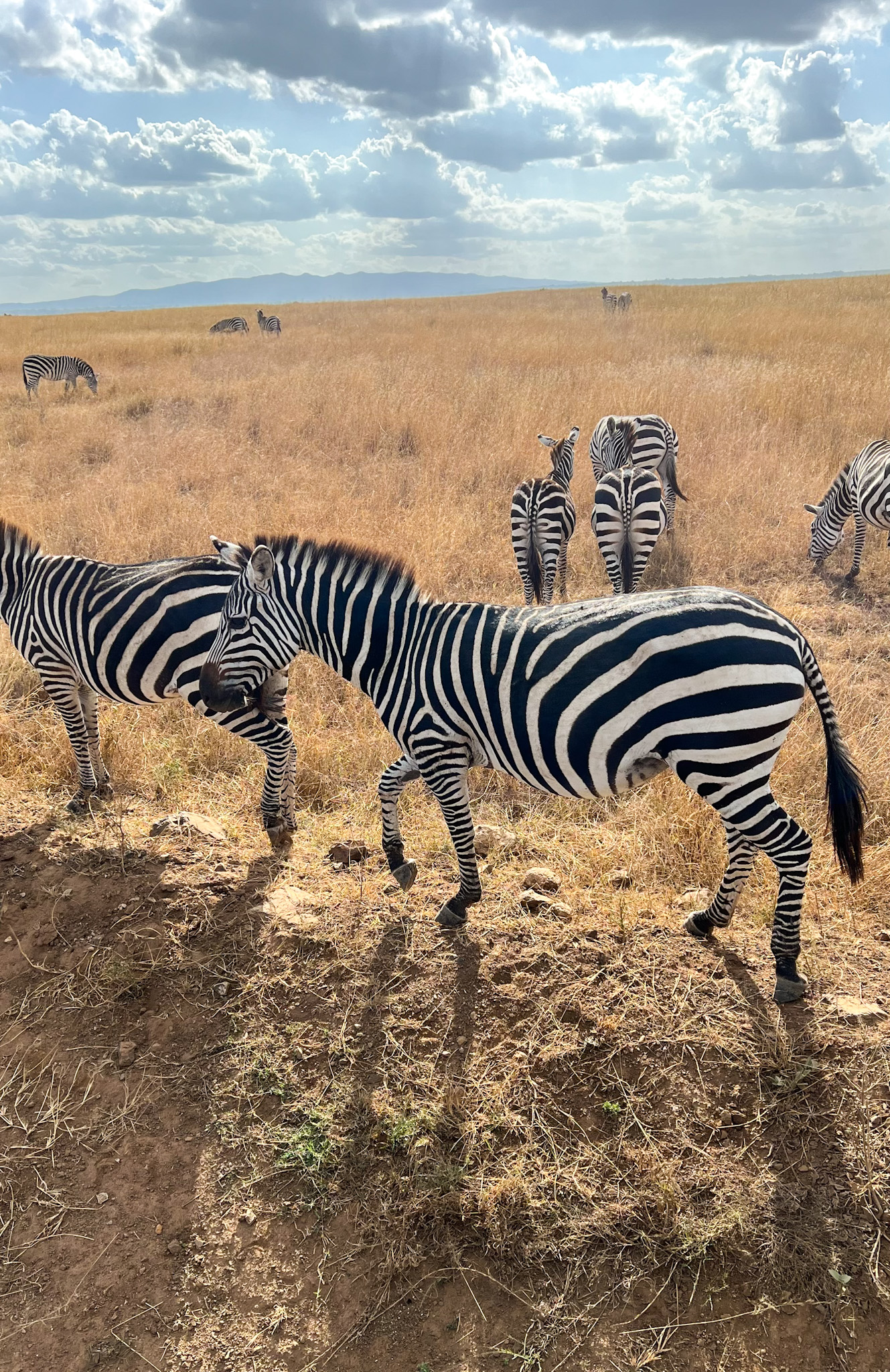While on a safari, it’s easy to get lost in the awe of the wild, forgetting that we are merely visitors, and this is not our territory. The land belongs to the creatures that roam it, and every sound, every rustle of the grass, reminds us that we are stepping into their world. It’s a place where nature reigns supreme, and we must respect its ancient rhythms. Our presence is fleeting, but the wilderness remains eternal, untamed, and beautiful in its raw authenticity.
So it is crucial that we keep our end of the bargain: just watch, be mindful, stay humble, and when done, leave little trace behind. Let’s discuss what not to do during a safari:

1.Do not pet or Touch the Animals
Even if it’s cute, do not pet or touch any animals: That adorable baby elephant or curious monkey might look harmless, but wild animals are unpredictable, and even the smallest can react defensively. Besides, they are not pets, but wild animals and human contact can be stressful for them. Admire and take pictures from a safe distance!
2. Avoid Littering
Avoid littering, especially with items like plastic water bottles, wrappers, and other harmful materials. Not only can this litter severely harm the wildlife, but you may also face hefty fines if caught. Many parks strictly warn against bringing such items and often inspect your bags to ensure you’re not carrying plastic cups or other hazardous substances.
3.Do Not Whistle
Whistling can trigger and startle many animals. For some, it may be interpreted as a sign of aggression, leading to defensive or unpredictable behavior. Additionally, whistling can confuse the park administration, as it is sometimes used as a form of communication or signaling for emergencies. To avoid misunderstanding and potential dangers, it’s best to stay silent and allow the sounds of nature to remain undisturbed. Remember, your actions affect not only the animals but also the safety protocols in place for visitors.

4. Never Exit Your Tour Vehicle Unless Instructed to do so
“I remember once being on a safari where someone really needed to step out. However, the guide warned us that the area had leopards, which are hard to spot, and in an instant, you could unknowingly become their next meal. That’s why tour vans always have a guide and driver to identify safe places to get out, ensuring everyone’s safety.
5. Do Not Feed The Animals
Hyenas are opportunistic scavengers, meaning they learn quickly and can associate humans with food. Feeding wild animals like hyenas can create a dangerous situation because they start associating humans with easy food. This behavior can lead to animals becoming more aggressive or approaching humans, expecting to be fed
This is similar to what happens with monkeys. Have you ever had food snatched by a monkey? I’ve heard stories of monkeys getting quite aggressive if you don’t have food or something edible with you, sometimes even taking items from people forcefully!

6. Avoid Eye Contact And Keep It Respectful
I’ve encountered a pride of lions during safaris, and one thing is certain: lions are not easily intimidated. On one occasion, we found them lounging on the road and had to wait patiently. We took pictures, but always kept a respectful distance. We made sure to avoid any sudden loud noises or intense eye contact, as they were staring back at us with a look that seemed to say, “I dare you.” (Staring directly at lions can be perceived as a challenge or threat). Maintaining calm and respectful behavior is crucial in such situations to ensure both our safety and the lions’ comfort.
7. Do Not Chase The Animals ; Do Not Rush
Imagine encountering a group of ostriches blocking the road. We had to turn around and find an alternate route, as they didn’t seem to be moving anytime soon. During a safari, it’s important to remember that animals are always on the move—some are gazing around, others are crossing paths on their way to drink, or hunting for their next meal. To handle this, the tour driver and guide keep a steady pace that avoids stressing the animals. This way, you get to enjoy and snap some great photos without feeling rushed.
With that in mind, safaris can be quite exhausting, so it’s best to avoid planning any strenuous activities afterward.
Did you know ostriches can run up to 45 miles per hour?
To wrap It Up!
Don’t forget to enjoy! Speaking or conversing in low tones works well—listen to your guide, do some research, and schedule your safaris during the best times and seasons. Carry organic snacks like bananas or eat before the safari, take your time to soak it all in, stay mindful and humble, and most importantly, enjoy the experience.


